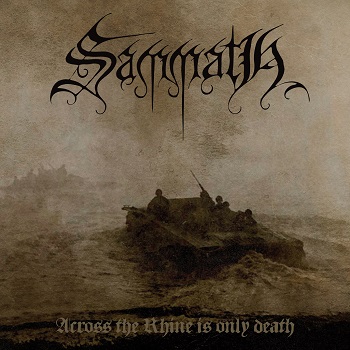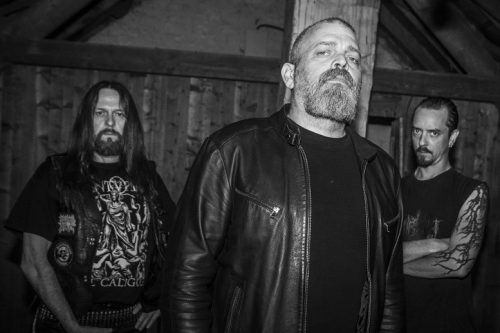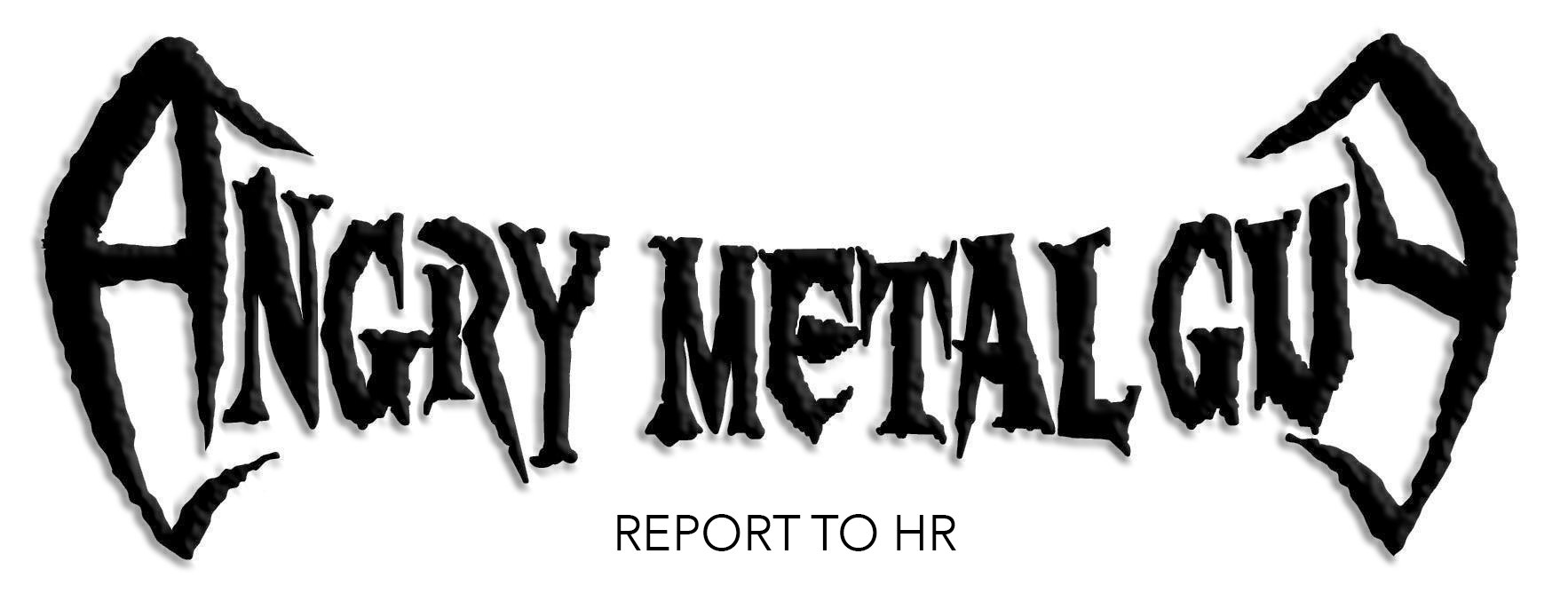 On Van Gogh’s painting of peasant shoes, German philosopher Martin Heidegger remarked in part, “The shoes vibrate with the silent call of the earth, its silent gift of the ripening grain, its unexplained self-refusal in the wintry field. This equipment is pervaded by uncomplaining worry as to the certainty of bread, wordless joy at having once more withstood want, trembling before the impending birth, and shivering at the surrounding menace of death.” Provided Heidegger is correct, we see a lot expressed in a painting of shoes. Another artist could paint the shoes and using the same subject express a wholly different outlook. Metal has this habit with war—myriad bands contemplate it and find wildly different elements to paint their sonic portrait, their own vision of the peasant shoes.
On Van Gogh’s painting of peasant shoes, German philosopher Martin Heidegger remarked in part, “The shoes vibrate with the silent call of the earth, its silent gift of the ripening grain, its unexplained self-refusal in the wintry field. This equipment is pervaded by uncomplaining worry as to the certainty of bread, wordless joy at having once more withstood want, trembling before the impending birth, and shivering at the surrounding menace of death.” Provided Heidegger is correct, we see a lot expressed in a painting of shoes. Another artist could paint the shoes and using the same subject express a wholly different outlook. Metal has this habit with war—myriad bands contemplate it and find wildly different elements to paint their sonic portrait, their own vision of the peasant shoes.
Sammath see war in an unforgiving light. Their death-tinged black metal sees war—specifically World War II—as human folly writ large, a senseless mess of faceless killing, death, and destruction with no real resolution. The glorious triumphalism of Sabaton or Amon Amarth has no place here, nor does the accessible violence of Bolt Thrower. Across the Rhine Is Only Death traffics in aural annihilation, creating a chaotic battlefield through sound that’s still organized—still all too human, still deliberate. We alone are capable of this horror—this is the message of Sammath’s music here. There is no glory to be found, only violence and its aftermath. Sammath wisely choose not to be edgy either; Rhine’s focus on the death throes of the German army in WWII humanizes those German soldiers desperately holding their border at the end of a war that was all but lost. We don’t hear about Germany’s ideals of that time—this is about war and its destruction, its human and spiritual cost.
The gruff, strained shriek of “There is no place for your God here” over the riff-heavy maelstrom of “Ferocious Mortar Fire” gives grim life to the spiritual cost of total war, and ably paints the battlefield described as Hell. The riffing is a pulverizing mixture of Panzer Division Marduk, Angelcorpse, and Revenge—chaotic, complex yet not impenetrable, and impactful. Without its thematic heft, this would be a noteworthy black metal track. When taking its theme into account, Sammath’s music is elevated to the upper echelons of the genre. When “Savagery” begins the record, it uses Marduk’s style of tremolo melody to great effect, with an oft-repeating melody sounding victorious in a sense but not triumphant whatsoever—the winners still lose. The morose yet not whatsoever overwrought trem-picked melody which closes out the record after the blasts have given away to a deathly trudge ends Rhine in a powerful manner, doing for it what the downpour that closes Reign in Blood did for that record: allow the listener to process, and once the music fully gives way to silence, to let that hang in the air for a few distinctly noticeable seconds longer than normal. The album’s conclusion is welcome, but it wasn’t longed for; Sammath have found the precise right length for Rhine.

On the vocal front, guitarist and founder Jan Kruitwagen is an asset. His vocals sound untrained, as though he’s relying on a seething rage mingled with sadness instead of learned technique. His idiosyncratic delivery makes “no retreat, no surrender” in the excellent “All Lay Dead in the Slit Trenches of Calcar” take on a bitterly resigned character, raging against the inevitable and swiftly approaching dying of the light. The vocal patterns are interesting as well, as Kruitwagen tends to avoid obvious phrasings in favor of something more expressive. He painfully draws out many of his words and syllables to make unavoidable the harrowing subject matter of the record.
In all, Rhine is perhaps Sammath’s best record and, in my view, the new benchmark for the most extreme end of the black metal spectrum adjacent to war metal. This record is an aurally exhausting experience, but a rewarding one. Once the listener becomes accustomed to the pummeling of a nearly relentless audial barrage, a look behind the curtain reveals a well-oiled songwriting machine. By all but eschewing the common verse-chorus-verse structure, Sammath allow Rhine’s songs to develop as they must to exhaust but not make incessant the animating riffs and ideas, meaning that repetition is deliberate and measured instead of structurally obligatory. Rhine sees Sammath stand athwart humanity’s biggest, bloodiest, deadliest war and scream in horror, awe, and disgust. Anyone can make chaotic sounding music, but this—this is special.
Rating: 4.0/5.0
DR: 6 | Format Reviewed: 192 kbps mp3
Label: Hammerheart Records
Websites: sammathhhr.bandcamp.com | facebook.com/sammath666
Releases Worldwide: October 7th, 2019

















